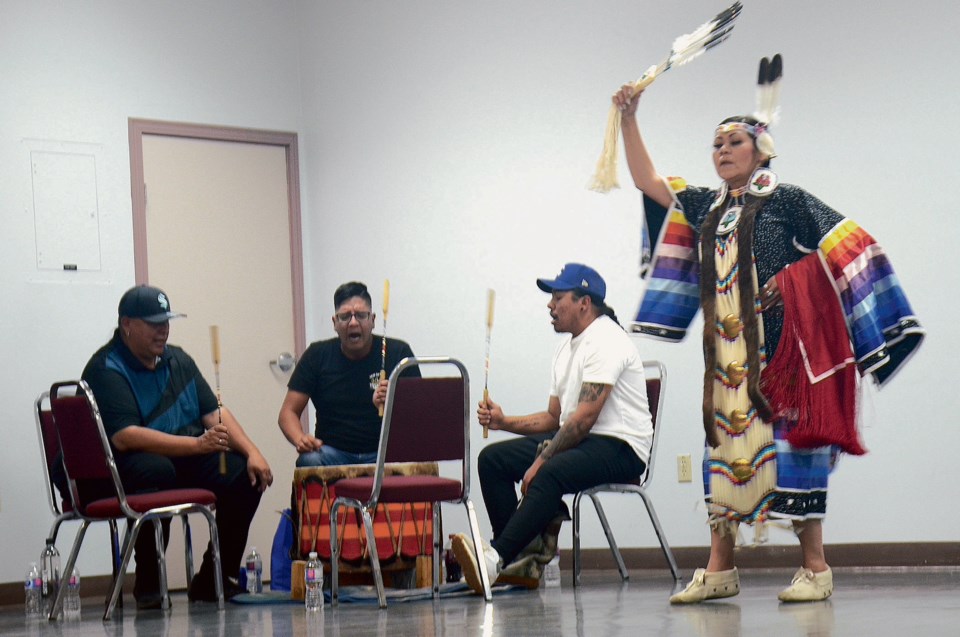WESTLOCK — Indigenous music, dance and history was shared with more than 150 people last Wednesday, Sept. 28, at Westlock Memorial Hall during the community’s inaugural National Day for Truth and Reconciliation event.
Co-hosted by the Town of Westlock, Village of Clyde, Westlock Conex and Kipohtakaw (Alexander) First Nation, the event saw people come together to share a traditional First Nation meal and celebrate First Nation culture as part of the designated Orange Shirt Day, a National Day for Truth and Reconciliation Sept. 30.
The evening also featured a presentation from Elder Rita Arcand, a social worker and a residential school survivor who spoke on the history and lives of First Nations people in Canada and their experiences with residential schools. She also shared details of her own life as a survivor and how she is helping others today deal with the intergenerational pain and trauma that’s left many survivors and their families scarred.
“I think the people that came out (from Alexander First Nation) to speak to us and perform for us were very happy to be here and were very well received by our community,” said Westlock mayor Ralph Leriger. “(It was) said very well that you do not reach reconciliation unless you start with the truth and it’s somewhere in between those two things, there’s a journey that everyone needs to go on and we’ve started that today.”
Alexander First Nation organizer Kori-Leigh Arcand was pleased by the turnout and the support received from the partnering communities.
“We were really excited to come out here and to see everyone wearing their orange shirts — it makes me feel really hopeful,” said Arcand. “I think this is the start of a wonderful relationship and I hope that we can continue to do more things together in the future to build that relationship.”
Janina Zarowny and her family who are originally from Fishing Lake Metis Settlement and now reside in Clyde, were one of many families who attended.
“We went through years and years of generational trauma, learning, growing, and changing and (now) I’m breaking cycles with my children — my children are the first children in our family generation not to end up in child services,” said Zarowny. “I spent 10 years in 18 different homes so it’s important for them to understand their background and how it has affected their day to day lives and realize how much progress we’re making. It might not seem a lot but we are making progress daily.”
Her 14-year-old son Jason Laboucane said it is important for today’s youth to learn about the past and impact of residential schools so they can build a better future.
“It’s important that people reflect and learn about what has happened to people of our culture,” said Laboucane. “If we don’t know about it, we won’t be able to fix it in the future.”



